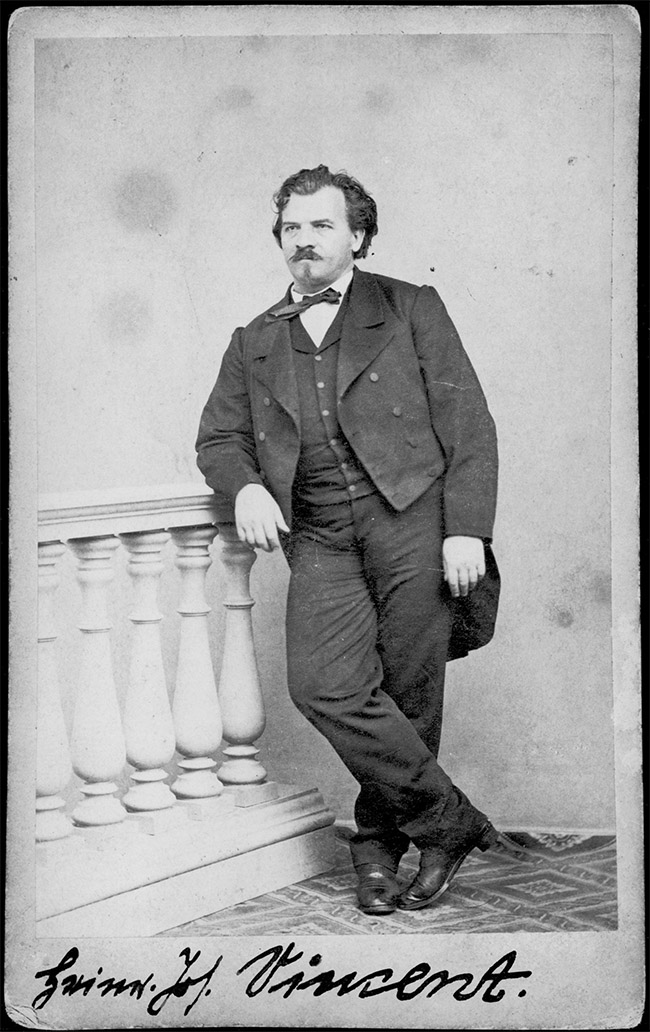His real name was Heinrich Josef Winzenhörlein. Vincent's career was typical of someone who belonged to the
proletarian ranks of singers in the 19th century. Those singers had to
continuously move from city to city to make a living.
Vincent published Memoiren eines Opernsängers in the Allgemeine Musikalische Zeitung in 1880/81.
He referred to himself only as Heinrich, but thanks to the yearbooks of the different theaters, he can be identified. Contracts
at that time were more oriented towards the musical requirements of a piece than towards the vocal qualifications of the
singers. As a second tenor in Nürnberg in 1844, he sang in Freischütz. However, Vincent did not sing Max but
Ottokar, a baritone role. In that theater, there was no possibility to build one's repertory. In Königsberg in 1854,
Vincent was hired to sing Ernani, but never got the chance to sing Tannhäuser, not even as member of the second cast. In
Halle in 1865, Vincent was the first tenor and arrived at three performances of Tannhäuser.
That was the only occasion that Vincent appeared in a Wagner role. His career was a typical monotonous career without any
breakthrough. The different theaters' yearbooks show that he
sang in 16 cities during his 21 years career. In his autobiography, Vincent states he sang in 33 cities. Like many others,
Vincent was an autodidact who tried all his life to learn the real belcanto style.
Already from 1860, Vincent was also a music theorist; he quit the stage in 1870, worked as a choir conductor, and from 1878 lived
as an author and composer in Vienna. He developed an extensive theory on a fundamental reform of musical notation.
